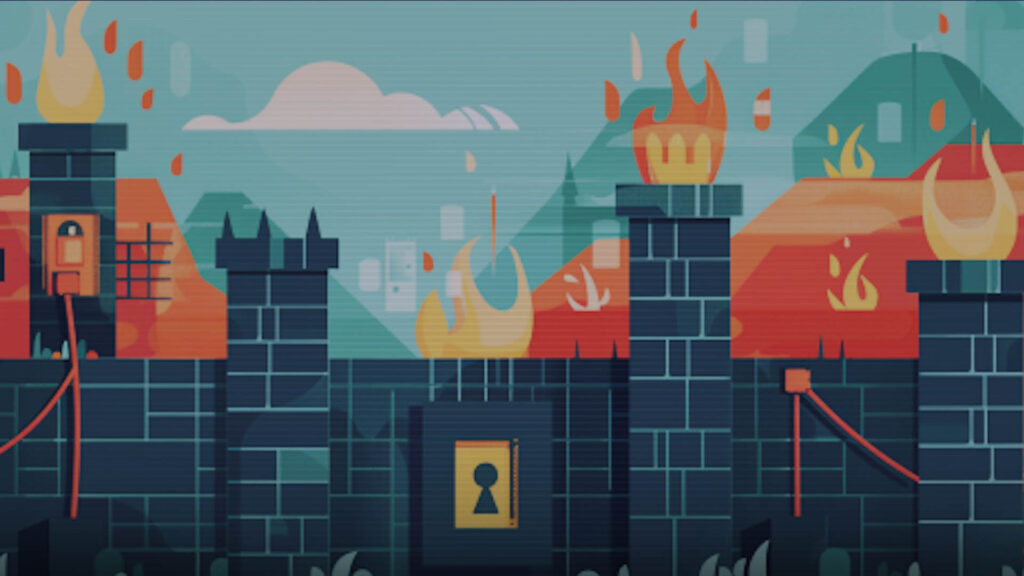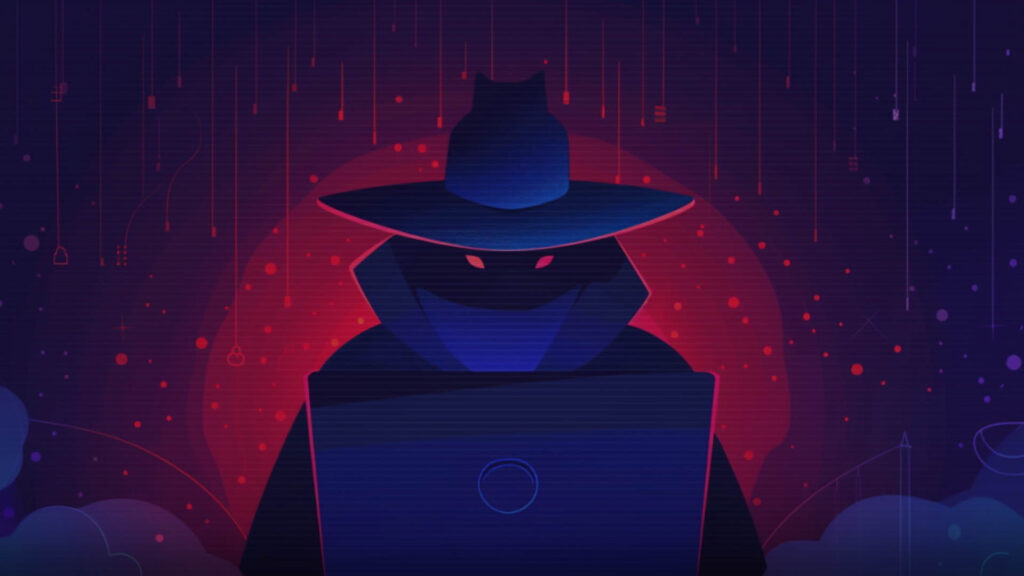The world of online-gaming is fast paced, hence we always focus on talking about speed, bandwidth and latency. But what if we told you that there is something that, in the end, has a much bigger impact? You guessed it, Security. The gaming industry, with its massive user bases and the demand for real-time interactions, presents a particularly attractive target for cybercriminals. As games become more connected and complex, the data they generate and store becomes increasingly valuable. According to a report by Akamai, the gaming industry faced 246 million web application attacks in 2020, a staggering 340% increase from 2019.
From player profiles and in-game transactions to the very servers that keep these games running smoothly, every aspect of a gaming environment is vulnerable if not properly secured. Ensuring robust security measures in game hosting is essential not only to protect sensitive data but also to maintain the seamless, uninterrupted gameplay that players expect. Without it, the risks can include data breaches, service outages, and a loss of player trust that can be difficult, if not impossible, to regain. A prime example of the impact of inadequate security in the gaming industry is the 2011 PlayStation Network breach.
In this incident, a cyberattack exposed the personal information of 77 million users, including names, addresses, and credit card details. The breach forced Sony to take the network offline for 23 days, during which players were unable to access online services or games. The financial damage was immense, costing Sony an estimated $171 million, but the reputational damage was even more significant. Gamers worldwide lost trust in the platform, and it took Sony years to fully recover. To continue our Basics of Hosting series, we will explore key security measures that are essential for protecting your game hosting environment. From securing player data to preventing disruptive attacks, these strategies will help you build a resilient platform that can withstand the threats posed by today’s digital landscape.

Section 1: SSL/TLS Certificates
SSL (Secure Sockets Layer) and its successor TLS (Transport Layer Security) are cryptographic protocols designed to provide secure communication over a computer network. When it comes to video game hosting, SSL/TLS certificates play a crucial role in ensuring that the data exchanged between a player’s device and the game server is encrypted and protected from unauthorized access. In the context of gaming, these certificates are vital for securing sensitive information. This includes not only personal details like usernames and passwords but also financial data involved in in-game purchases. Simply put: By encrypting the information, SSL/TLS prevents cybercriminals from intercepting or tampering with the data as it travels across the internet.
For ease of understanding, let’s look at two different examples:
The first is an In-Game Transaction. Consider the scenario of a player purchasing a new skin or an in-game currency pack in a popular online game. During this transaction, the player inputs their credit card information, which is then transmitted to the game server for processing. Without encryption, this sensitive data could be intercepted by malicious actors, leading to potential identity theft or fraud. However, with SSL/TLS certificates in place, the transaction is encrypted, making it virtually impossible for unauthorized parties to access the credit card information.
Another critical application is the Player Authentication Process. Many modern games require players to log in to access their accounts, often tied to their in-game progress, achievements, and purchased content. For games with account-based progression or subscription models, ensuring that login credentials are securely transmitted is crucial. SSL/TLS certificates encrypt the login data, such as usernames and passwords, preventing it from being intercepted by hackers. This is especially important in protecting against man-in-the-middle attacks, where an attacker could potentially intercept and steal login credentials if the data were not encrypted.

Section 2: Firewall Configuration
If you’ve ever played a multiplayer game, you might have encountered the challenges that come with a firewall. Because, for all the good it does, it seems to be the most effective when a group of friends wants to hang out online. Jokes aside, Firewalls are effective security systems that monitor and control incoming and outgoing network traffic based on predetermined security rules. They act as a barrier between a trusted internal network and untrusted external networks, such as the internet. In the context of video game hosting, firewalls are essential for protecting game servers from unauthorized access and malicious traffic. They prevent potential intruders from exploiting vulnerabilities in the server, ensuring that both the game and the player data remain secure.
To give more examples, we chose DDoS Mitigation and Cheat Prevention.
A Distributed Denial of Service (DDoS) attack is one of the most common and disruptive threats to game servers. In a DDoS attack, the server is bombarded with an overwhelming amount of traffic, often generated by a network of compromised devices. Consider a popular multiplayer game that suddenly becomes the target of a DDoS attack during a major in-game event. Without proper defenses, the server might struggle to handle the surge in malicious traffic, resulting in severe lag, disconnections, and an overall frustrating experience for players.
However, with a well-configured firewall, the server can identify and filter out the malicious traffic before it reaches the game server, allowing legitimate players to continue their gameplay uninterrupted. The firewall achieves this by recognizing patterns typical of a DDoS attack and blocking traffic that fits those patterns, ensuring that the game remains accessible and responsive.
Firewalls are also crucial in the battle against cheating and exploits in online games. Cheating tools and exploits often attempt to gain unauthorized access to game servers or manipulate the data being transmitted between the player’s device and the server. This can give some players an unfair advantage, undermining the integrity of the game and frustrating the broader player base. For instance, in a competitive online shooter, cheats might involve manipulating network traffic to enable wall hacks or aimbots, giving cheaters the ability to see through walls or automatically aim with perfect accuracy. A properly configured firewall can be set up to detect and block these suspicious activities by monitoring traffic patterns and flagging anything that deviates from normal gameplay behavior.

Section 3: DDoS Protection
DDoS (Distributed Denial of Service) attacks are a specific type of cyber threat designed to overwhelm a server or network by flooding it with massive amounts of traffic. In the context of video game hosting, DDoS attacks can be particularly devastating. They can cause severe lag, force players to disconnect, or even bring entire servers offline, leading to significant downtime and a poor experience for gamers. Unlike other types of cyber threats that seek to gain unauthorized access or steal data, the primary goal of a DDoS attack is to disrupt the normal operation of a service, rendering it inaccessible to legitimate users.
Why are we listing DDoS Protection separately after including it as an example in our Firewall section? Because, a firewall is a general-purpose security tool that can block unauthorized access and filter out certain types of malicious traffic but is not specifically designed to handle the massive scale of a DDoS attack. Firewalls operate by applying predefined rules to traffic entering or leaving the network, which works well for most security needs. However, during a DDoS attack, the sheer volume of traffic can overwhelm a firewall’s capacity to filter it, leading to server crashes and downtime.
DDoS protection is specifically engineered to deal with the high-volume, sustained traffic surges characteristic of DDoS attacks. It uses advanced techniques, such as traffic scrubbing and rate limiting, to handle large-scale attacks that would typically bypass or overwhelm standard firewalls. This makes DDoS protection an essential addition to a security strategy, particularly for game hosting environments where server uptime and performance are critical. Again, we’re offering an example:
A notable example of a DDoS attack in the gaming industry occurred during the 2014 holiday season, when the hacking group Lizard Squad launched a series of DDoS attacks on Xbox Live and the PlayStation Network. These attacks were timed to disrupt holiday gaming for millions of players, causing widespread frustration as gamers were unable to connect to their favorite platforms because the attacks generated so much traffic that the servers were overwhelmed, leading to significant outages. Had modern DDoS protection been in place, it could have identified the flood of malicious traffic early on, redirecting or filtering it out before it reached the game servers.
Doubling down on this incident, DDoS protection is particularly crucial during major in-game events or launches. These are times when server loads are already at their peak due to a high number of players logging in simultaneously. Cyber attackers often target these moments, knowing that even a small disruption can cause significant chaos. For instance, during the launch of a highly anticipated game expansion or a special in-game event, servers may already be struggling to handle legitimate traffic.
A DDoS attack at this moment can be disastrous, potentially causing the event to fail entirely. With robust DDoS protection in place, the additional malicious traffic can be absorbed and deflected, allowing the servers to focus on processing legitimate player requests. This ensures that even during the busiest times, players experience smooth gameplay without the frustration of lag or disconnects.

Section 4: Data Backup and Disaster Recovery
It may sound odd but data is the lifeblood of many gaming experiences. From player progress and in-game achievements to transaction records and game state data, the integrity and availability of this information are crucial. Regular data backups and comprehensive disaster recovery plans are essential for safeguarding this data against loss due to unforeseen events such as cyberattacks, hardware failures and even natural disasters.
A well-structured backup strategy involves regularly copying critical data and storing it in secure locations. This ensures that, in the event of data loss, the information can be quickly restored, minimizing any downtime. Meanwhile, a disaster recovery plan is a broader strategy that outlines how to quickly restore normal operations after a catastrophic event. This plan typically includes steps for data recovery, server restoration, and communication protocols to ensure that all stakeholders are informed and that the recovery process is as smooth and efficient as possible.
Consider a popular cloud-based game where Player Progress, such as levels completed, items collected, and achievements unlocked, is stored on remote servers rather than on the player’s device. In this scenario, regular backups are crucial to ensuring that this data is not lost due to unexpected failures. For instance, if a server were to experience a hardware failure or a data corruption event, a recent backup would allow the game host to restore the player’s progress from the last saved point. This means that players can always resume their game right where they left off, without losing hours, days, or even weeks of progress.
Another example would be Ransomware Attack. In such an attack, cybercriminals encrypt the server’s data and demand a ransom payment in exchange for the decryption key. Without a robust backup and disaster recovery plan, the developer might face the impossible choice of either paying the ransom or losing critical game data, potentially including player progress, transaction records, and game updates. However, if the developer has a solid backup strategy in place, the situation becomes much more manageable. They can simply restore the affected data from the most recent backups, bypassing the need to engage with the attackers.
Data backup and disaster recovery are critical components of a resilient game hosting strategy. By regularly backing up game data and having a clear plan for restoring operations after a disaster, game hosts can protect against data loss, minimize downtime, and ensure that players can continue to enjoy their games without interruption. It might not sound important but it is an easy way to keep players’ trust.
With the increasing complexity and connectivity of modern games, the risks to game servers and player data continue to grow. It is crucial for game developers and hosting providers to regularly evaluate their security measures, identifying any potential weaknesses and taking proactive steps to strengthen their defenses. Keep in mind that, as gaming technologies continue to advance, so too do the tactics and tools used by cybercriminals. Security is constantly shifting, and staying ahead of these changes requires continuous vigilance and adaptation.
By keeping up to date with the latest security practices and technologies, game developers and hosting providers can protect their platforms from current threats and also anticipate and mitigate future risks. We’re here to help you with your projects so don’t hesitate to contact us.

















